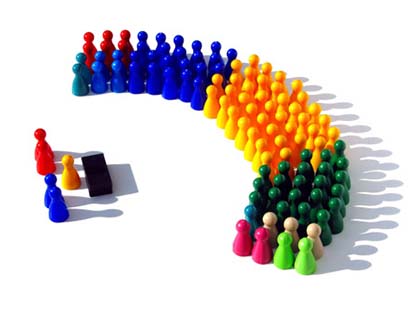In March this year, Lee Kuan Yew, the founding father of modern Singapore who transformed the country from a small town into one of the wealthiest nations of the world, died. He was widely praised by world leaders, with US President Barack Obama calling him ‘a true giant of history’, and Chinese foreign ministry calling him “a uniquely influential statesman in Asia”. Mr. Lee was prime minister of Singapore for 31 years, during which he led and oversaw modernization of the country.
Singapore is one of the world’s smallest countries while its population density is one of the highest. Singapore did not used to be such a great business hub as the modern day one is. It was a small fishing village with severe ethnic adversities, limited land and dwindling economy. In contrast to Muslim Majority Malaysia, Singapore was inhabited by majority of Chinese people. Only after 2 years of merger with the Federation of Malaysia, which Lee Kuan Yew campaigned for, Singapore was expelled from the federation. Lee Kuan Yew aware and afraid of the challenges his people were facing, announced the independence of a state which came to be known as modern day Singapore. That day, thousands of Singaporeans stood on the streets while watching their brave leader cry on air. The tears Lee wept that day, gave incentive to a nation to rise and change those tears to sweats of struggle and hard work. Now, Singapore nor is a fishing village neither it’s a poor country.
Singapore’s economic development can be an inspiring story for the war-ravaged Afghanistan. Three decades of subduing war, unstable security and trembling economy has brought Afghanistan to instability and extermination. Sporadic ethnic and sectarian clashes have also inflicted the nation in the past century. Afghan government is one of the most corrupt states as reported by Corruption Perception Index in 2014. What Afghanistan might need is a leader like Lee Kuan Yew. Lee can be an ideal role model to learn from, a role model to follow.
Though Singapore’s development credit goes to him, but necessarily it does not mean that after his death Singapore will decline to its post-60s condition. Lee did not make a personality cult. In contrast, he made a system in which both Malays and Chinese would live peacefully hence the gate for economic impoverishment would open. He maintained good relations with his southern neighbor Indonesia and lately he tried to enhance relations with its one time hostile Malaysia. Singapore’s GDP per capita is around $78,000, a significant rise from approximately $400 in the 60s. What made Singapore and Lee capable to fight its economic and land limitations is the lesson Afghanistan should learn and emulate.
It’s often called that Singapore owes its development to Lee and the phrase “Lee was Singapore” is used as a tribute to Lee. The question every Afghan should ask is that “Who is Afghanistan?” and does Afghanistan need that “someone” to develop? Whether Afghanistan would see such a statesman or not, would be a matter of history. The country has long been waiting for someone or some to salvage it.
Meanwhile in Afghanistan, the Coalition forces withdrew which means that the economic and military support umbrella would inevitably decline. Hence Afghans should find a source to fund their budget and the ANA should maintain security in the war-stricken country. On the other hand, the government should fight corruption and unite the country. These ambitions can not be fulfilled without a committed, clean and responsible country and sincere citizens who are willing to make endeavors for this country’s development. Afghanistan is the potential trade and transport hub in the center of Asia linking South Asia to the oil and gas enriched countries of Central Asia.
Afghanistan’s course of nation-building has been turbulent from the beginning. There have been wars, power struggles and foreign occupations of the country during the whole history of the nation. However, there can be some point to start building the country from scratch. There is abundance of examples of war-ravaged countries with troublesome histories that finally stood up and managed to change the course of history.
Afghanistan is no exception. There are many advantages and potentials for the country to start the nation-building anew. Afghanistan has a young population which could be a great opportunity for turning it into a valuable asset for its development. However, it also can be a serious threat for the country if it fails to develop its human resources. Also, there is a remarkable potential for the country to develop turn into a crossroads of business and trade cooperation. Afghanistan is located in a strategic location linking Central Asia and Europe with South Asia and Far East. For sustainable development, Afghanistan needs to find its suitable model for development. It cannot be necessarily the model used in Singapore, but it could be somehow similar given to Afghanistan’s resources and population. Afghanistan needs to invest on potential areas i.e. development of human resources and transit and trade potentials. Singapore is now a role model for many nations for development. And it could be for Afghanistan too. Afghan politicians need to imitate successful statesmen of the world such as Lee Kuan Yew and many others.

